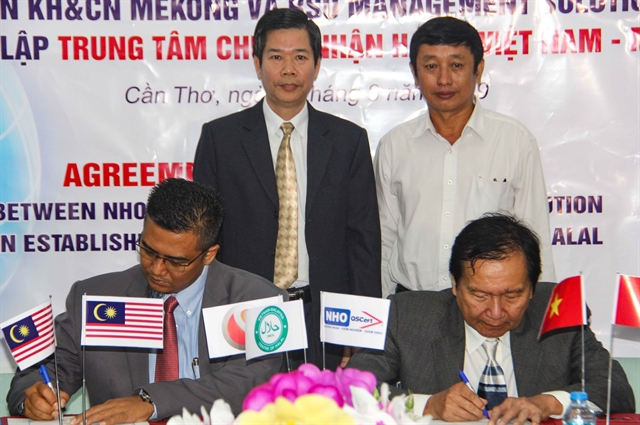The Việt Nam – Malaysia Centre of Halal, which is responsible for Halal certification, opened in the Cửu Long (Mekong) Delta city of Cần Thơ on Tuesday.

The Viet Nam – Malaysia Centre of Halal, which is responsible for Halal certification, opened in the Cuu Long (Mekong) Delta city of Can Tho on Tuesday.
The launch of the centre – the first of its kind in the region – followed an agreement inked between the NHO-QSCert Organisation under the city's NHONHO Technology Company and RSD Management Solution from Malaysia.
Halal refers to any action or behaviour that is permissible in Islam, and requires animals to be slaughtered in a particular way after a prayer.
General Director of NHONHO Co Hoang Ba Nghi said that many countries in the Middle East have great demand for imported Vietnamese goods, especially vegetables, fruits and seafood.
Nghi said Viet Nam’s export revenue to the region increased to US$14 billion in 2018 from $12 billion in 2016, reflecting the great potential of the market.
One of the major barriers facing Vietnamese exporters is the Halal certification, according to Nghi. The centre will provide Halal certificates to businesses that desire to export goods to Islamic countries.
Nor Helmy Mustapha, an expert from RSD Management Solution, said his organisation would step up the transfer of Malaysia’s Halal technology to Can Tho in order to serve the centre.
Pham Truong Yen, deputy director of the municipal Department of Agriculture and Rural Development, said the centre would help goods from Can Tho and other localities in the Mekong Delta better access the Middle East market of more than 1.8 billion people, contributing to improving agricultural value and local farmers’ incomes and completing the target of sustainable agricultural development.
Also at the signing ceremony, the centre granted Halal certificates to three businesses in Can Tho and Dong Nai Province.
According to the Viet Nam Chamber of Commerce and Industry, the global Halal industry is forecast to be worth $3.6 trillion by 2021, with food and drink accounting for $2 trillion. — VNS




